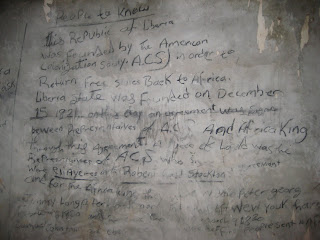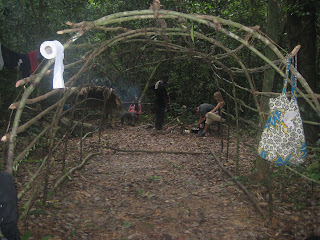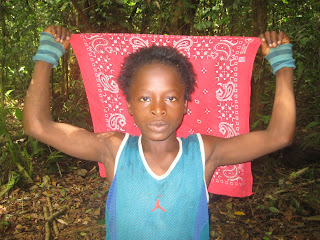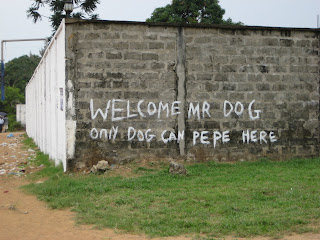
Everybody needs a little closure. Despite many months of bloggy neglect, it's time to wrap this baby up and move on. I could list about a hundred things I'll truly miss about West Africa, followed by a hundred and one things I'm thrilled to leave behind. But that's lame. Instead, these photos are my final farewell.
It's become popular in Liberia to borrow a phrase coined by a local newspaper's back page: 'This, too, is Liberia.' The paper's version usually involves a photo of typical Liberian life (a caterpillar scare, a prison break, a corrupt official) followed by a valiant effort to be poetic in the caption. A totally awesome night club (above) in a tiny town has adapted the phrase in glow-in-the-dark glory. This, too, is Zwedru.

Decaying houses made of wood and rusty corrugated zinc are everywhere along the coasts of Liberia and Sierra Leone. It may look like a house of cards that will topple at the slightest breeze, but I love it. In America, it would be an eyesore. In Africa, it's like a work of art.

This history of Liberia is written on the wall inside former president Samuel K. Doe's house in Zwedru. It tells the story of the country's founding by freed slaves sent back to Africa by the American Colonization Society. Lots of old abandoned buildings were occupied by rebels during the war, and they drew all sorts of vulgar, violent, and in this case strangely educational things all over the place. While we were checking out this creepy house, my Liberian colleague smelled marijuana, got spooked at the possibility of ex-combatants squatting on the property, and hurried us into the truck to make our getaway.

Me with a super sketchy merry-go-round at the Government Demon School in Robertsport. As often happens in West Africa, locals can't understand why in the world we think the name of this school is funny. It's like the ubiquitous 'Beauty Saloon' of West Africa. "Why do you laugh? It's just a saloon where women do their hair."

West Africa is a beautiful place. Don't be scared of it. Heck, take a vacation there if you ever get a chance. Sure it has umpteen enormous problems. But if you're like me and never learned a blessed thing about Africa in school, a visit will teach you a heap in a hurry. See you someday, Africa. Next stop: Mexico.




























